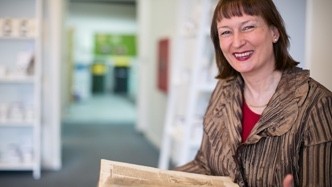Soapbox
GPs need schooling in complementary medicines

The government’s move has prompted Complementary Medicines Australia (CMA) to highlight the importance of greater complementary medicines knowledge required by general practitioners.
As far back as 2008, the National Prescribing Service found that one-third of GPs reported practising integrative medicine. A number of GP focus group participants perceived themselves as playing an important role in their patients’ use of complementary medicines, with some GPs suggesting that a failure to engage adequately with this practice area may render general practice out of touch with a growing number of patients.
The Australian Medical Association acknowledges that complementary medicine use in Australia is considerable and increasing. Many consumers purchase a wide range of complementary medicines and with two people in every three in Australia using complementary medicines, it’s important that general practitioners are comfortable discussing these products alongside conventional medicines.

Not surprisingly, the NPS also found that people preferred to be treated as a “whole person”, rather than as composites of numerous biomechanical attributes, with people holding the belief that they should have input and participate in the process of caring for their health.
Patients are becoming less passive in their healthcare, no longer accepting of an asymmetrical relationship where the doctor is seen as holding all the answers.
Perhaps what is also required, along with greater GP knowledge of complementary medicines, is a better understanding of how an individual doctor’s own beliefs will influence their patient encounters; that patients have their own beliefs and attitudes; and that there needs to be a healthy respect for the patient viewpoint.
While research has shown that GPs have varied opinions on the use of complementary medicines, the majority agree that complementary medicines are well accepted by consumers and that they have a role in ensuring that these products are used safely and effectively.
The concern, of course, is those few GPs who may choose to frown on the use of complementary medicines and the choices their patients have made with regard to their health. The result appears to be that people continue to take their complementary medicines; they just don’t tell their doctor.
Allowing people to be empowered in taking care of their health is not discordant with either putting trust in the doctor-patient relationship or with biomedical science.
Conventional and complementary medicine can co-exist within a health environment. In China, biomedicine is often practiced alongside traditional Chinese medicine and most public general hospitals have traditional medicine departments.
Ayurveda, which incorporates plant-based medicines, meditation, massage and yoga, comes from a Sanskrit word that when translated means “practices of longevity”; it emphasises a healthy life.
People should be able to draw on a plurality of practices in order to maintain health, foster wellbeing, and address illness. Australians should have the right to choose the approach to healthcare they feel is suitable for them.
They should be able to inform their doctor of the complementary medicines they are taking and they should be able to expect an open and respectful dialogue.














